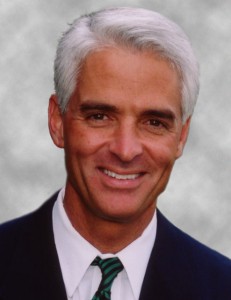Tallahassee, FL – August 27, 2025 – WJHG News Channel 7- New law makes moving easier for Florida foster families Moving is stressful enough, but for foster families in Florida, it’s often meant starting from scratch.
Miami, FL – August 14, 2025 – NBC 6 South Florida- North Miami couple arrested after kids found ‘severely malnourished’: Police A North Miami couple was arrested for child neglect after authorities said their two young children were found “severely malnourished” and one had arm and leg fractures.
Yorkville, IL – August 12, 2025 – Fox 32- Illinois lawmaker, DCFS dispute legality of intern investigators in child abuse cases An Illinois lawmaker is accusing the Department of Children and Family Services (DCFS) of breaking state law by allowing uncertified interns to conduct child abuse and neglect investigations, while the agency says all investigators meet legal certification requirements.
Miami Gardens, FL – August 5, 2025 – CBS News- Miami Gardens mom faces neglect charges after nine children found living in “deplorable conditions,” police say A Miami Gardens mom is facing multiple counts of child neglect after police discovered nine children living in a home in “deplorable conditions,” according to Miami Gardens police.
Riviera Beach, FL – July 7, 2025 – CBS 12 News- DCF won’t comment after 7-year-old girl stomped to death; mom charged with murder It’s the agency with the most important mission in the state: keeping kids safe.
Tallahassee, FL – July 4, 2025 – WCJB- New Florida laws expand access to care for children with disabilities Children with disabilities across Florida will soon see more support, thanks to two new state laws aimed at improving access to care.
Clewiston, FL – May 27, 2025 – Fox 4- Clewiston city director arrested, accused of sending explicit texts to child A City of Clewiston operations director is facing serious charges – accused of sending sexually explicit texts to a 12-year-old girl.
Miami, FL – April 30, 2025 – NBC Miami- ‘Wish you well in hell’: Survivor quotes Cardi B as nurse gets life in adoptive daughter’s murder A Miami-Dade nurse convicted in the 2018 death of her 7-year-old adoptive daughter and the abuse of her other two adopted children was sentenced to life in prison on Wednesday.
Orlando, FL – April 29, 2025 – WFTV 9- Records show Florida knew about defects in application portal for DCF benefits For more than a year, Florida’s Department of Children and Families has been telling 9 Investigates there are no problems with the state’s website for SNAP and Medicaid benefits.
Springfield, IL – April 25, 2025 – Capitol News Illinois- Illinois community-based foster homes face insurance ‘crisis’ Insurance companies are reducing the scope of coverage for some community foster agencies in Illinois, leading to higher costs, diminished coverage and fewer options for agencies who say a continuance of the trend could lead to closures.
Miami, FL – April 1, 2025 – WPLG Local 10- Disgraced ex-NYC councilman caught with child sex abuse videos at Miami airport, feds say A former member of the New York City Council — who left office in disgrace leading up to a federal bribery conviction — is now in the feds’ crosshairs again: this time in South Florida.
Cook County, IL – March 24, 2025 – WCBU- Illinois’ child welfare agency failed to produce critical reports after child deaths The state agency responsible for keeping Illinois’ most vulnerable children safe has failed to produce legally required public reports after examining what went wrong in hundreds of cases of child deaths and thousands of serious injuries, the Illinois Answers Project reports.
Chicago, IL – March 22, 2025 – ABC 7 Chicago- Illinois child welfare agency’s reporting on abuse and deaths scrutinized The Illinois Department of Children and Family Services is now under scrutiny for its lack of proper reporting on child abuse and neglect cases, according to a report from the Illinois Answers Project.
Tallahassee, FL – March 9, 2025 – WFSU- Two Florida state agencies announce new tools for combating human trafficking Two state agencies are working to identify kids vulnerable to sex trafficking before they’re victimized. The Florida Department of Children and Families and the Florida Department of Law Enforcement have announced an enhanced screening tool and new grant funding for law enforcement.
Chicago, IL – January 31, 2025 – NPR Illinois- DCFS launches new app for caseworkers and families The state of Illinois is rolling out a new app to help parents of abused and neglected children better communicate with their Department of Children and Family Services [DCFS] caseworkers and with other service providers.
Broward County, FL – January 30, 2025 – The Sun-Sentinel- Broward Sheriff’s Office will stop staffing juvenile detention center in May Blaming staff shortages and an unsafe building to work in, the Broward Sheriff’s Office will no longer send deputies to work at the state’s Department of Justice’s Juvenile Assessment Center.
Vernon, CT – November 19, 2024 – WLBT- Woman left 4 kids home alone in ‘filth’ for days while she took a trip to New York, police say A woman in Connecticut is accused of leaving her four kids alone for days while she took a trip to New York, according to authorities.
Flagler County, FL – November 10, 2024 – CBS 12- Flagler County middle school employee accused of attacking disabled student An employee at Indian Trails Middle School has been accused of child abuse after she was caught on camera striking a disabled student in an unprovoked attack.
Chicago, Il – November 8, 2024 – CBS News Chicago- Troubled teen who escaped DCFS caseworkers was not placed into secure facility after being found A 17-year-old with a violent history escaped from his caseworkers in Chicago last month, and it turns out the foster child in the care of the Illinois Department of Children and Family Services was not placed in a secure facility recommended to the state after being brought back into custody.
Jacksonville, FL – September 20, 2024 – Action News Jax- Duval County teacher under investigation after 8-year-old is injured A Beauclerc Elementary School teacher is being investigated by Duval County Public Schools after a physical incident with an 8-year-old student.
Miami, FL – September 3, 2024 – Miami Herald- Rising costs of care could strain funding for Florida program for brain-damaged kids Facing withering criticism from parents, advocates, lawmakers and insurance regulators, Florida’s compensation program for children born with catastrophic brain injuries opened its bank account three years ago and improved the lives of some of the state’s most disabled children.
Orlando, FL – September 2, 2024 – Orlando Sentinel- Autism drowning deaths prompt push for children’s specialized swim lessons Drowning is the number one cause of death for kids with autism and Florida leads the nation in fatalies.
Aventura, FL – August 5, 2024 – WSVN News 7- Parents arrested after leaving toddler in hot car while they shopped at Target in Aventura, police say A man and woman were arrested on child abuse charges after allegedly leaving their 2-year-old child in a hot car while they shopped at Target in Aventura.
Austin, TX – July 18, 2024 – WPLG Local 10- Largest housing provider for migrant children engaged in pervasive sexual abuse, US says Employees of the largest housing provider for unaccompanied migrant children in the U.S. repeatedly sexually abused and harassed children in their care for at least eight years, the Justice Department said Thursday, alleging a shocking litany of offenses that took place as the company amassed billions of dollars in government contracts.
Daytona Beach, FL – July 9, 2024 – WESH 2- Police: Man arrested in Daytona Beach after dangling, dropping child off second-floor resort balcony A 31-year-old man was arrested on Saturday after allegedly dropping a 4-year-old off the second floor of a Daytona Beach resort, according to an affidavit from the police department.
Palm Coast, FL – July 7, 2024 – WSVN 7- Florida woman charged with child neglect after good Samaritan finds 2-year-old son wandering near busy road alone A good Samaritan found a 2-year-old boy wandering in a Florida neighborhood all alone, and now the child’s mother is facing charges after she was found fast asleep inside their home.
Homestead, FL – May 16, 2024 – WPLG Local 10- Homestead couple accused of murdering their 6-month-old baby girl Two 24-year-old parents brought their 6-month-old to Homestead Hospital in cardiac arrest Sunday afternoon; doctors found that the baby had no pulse and signs of severe child abuse, according to police.
Brevard County, FL – May 16, 2024 – WESH 2 Orlando- Family sues Brevard County day care for alleged child abuse and negligence An incident at a Brevard County day care involving a child and teacher has led to more allegations of child abuse and negligence after the Department of Children and Families studied surveillance video.
Chicago, IL – May 7, 2024 – WSIL – TV- Lawsuit alleges pervasive child sexual abuse at Illinois juvenile detention centers for decades A group of 95 people filed a lawsuit in Illinois on Monday alleging they were sexually abused as children in juvenile detention centers across the state for over two decades.
Wildwood, FL – May 4, 2024 – Fox 35 Orlando- Florida DCF worker accused of abusing 11-year-old foster child A Kids Central employee was arrested after he aggressively threw an 11-year-old foster child onto a couch and hurt her, according to an arrest affidavit from the Wildwood Police Department.
Tallahassee, FL – May 3, 2024 – The Tampa Bay Times – Nearly 600,000 Florida kids shed from government health care, study says Nearly 600,000 Florida children lost their government-provided health insurance last year after the federal government ended the national COVID-related health emergency, more than any other state except Texas, according to a newly released report by the Georgetown Center for Children and Families.






